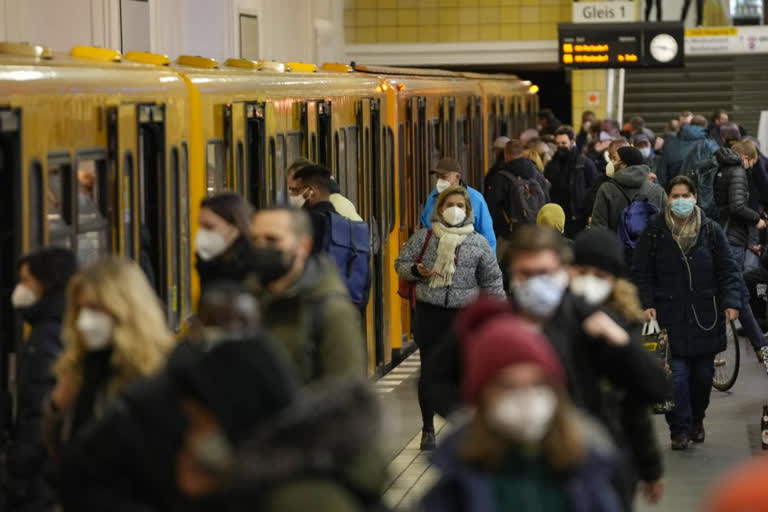Brussels:New findings about the coronavirus's omicron variant made it clear Tuesday that the emerging threat slipped into countries before their defenses were up, as two distant nations announced their first cases and a third reported its presence before South African officials sounded the alarm.
The Netherlands' RIVM health institute found omicron in samples dating from Nov. 19 and 23. The World Health Organisation said South Africa first reported the variant to the U.N. health agency on Nov. 24. Meanwhile, Japan and France reported their first cases of the new variant that has forced the world once again to pinball between hopes of returning to normal and fears that the worst is yet to come.
Much remains unknown about the new variant, including how contagious it might be, but a WHO official said Tuesday that there could soon be a steep rise in infections in parts of southern Africa.
It is unclear where or when the variant first emerged, and the Dutch announcement further muddies the timeline. Previously, the Netherlands had said it found the variant among passengers who came from South Africa on Friday — but the new cases predate that.
That hasn't stopped wary nations from rushing to impose travel restrictions, especially on visitors coming from southern Africa. Those moves have been criticized by South Africa and the WHO has urged against them, noting their limited effect.
The latest news though made it increasingly clear that travel bans would struggle to stop the spread of the variant. The Netherlands, Belgium and France have now all reported cases in people who were in their countries before the European Union imposed flight restrictions.
Japan announced that it would ban all foreign visitors beginning Tuesday — but that turned out to be too late. It confirmed its first case that day, a Namibian diplomat who recently arrived from his country.
German authorities, meanwhile, said they had an omicron infection in a man who had neither been abroad nor had contact with anyone who was.
The WHO warned Monday that the global risk from omicron is “very high.” and that early evidence suggests it could be more contagious.
The growing number of cases attributed to omicron in Botswana and South Africa suggests that this may be the first sign of a “a steep rise,” Dr. Nicksy Gumede-Moeletsi, regional virologist for the World Health Organisation, told The Associated Press on Tuesday.
“There is a possibility that really we're going to be seeing a serious doubling or tripling of the cases as we move along or as the week unfolds,” Gumede-Moeletsi said.
After a period of low transmission in South Africa, new cases began to rapidly increase in the middle of November. Currently the country is confirming nearly 3,000 new infections per day.
Also Read:It Looks Like Omicron Causes Milder Illness; Is this How COVID Becomes Endemic?
The concentration of omicron cases among university students in the capital of Pretoria is a particular cause for concern because that group is very sociable — and will soon be heading for their homes at the end of the year and mixing with friends and family.
